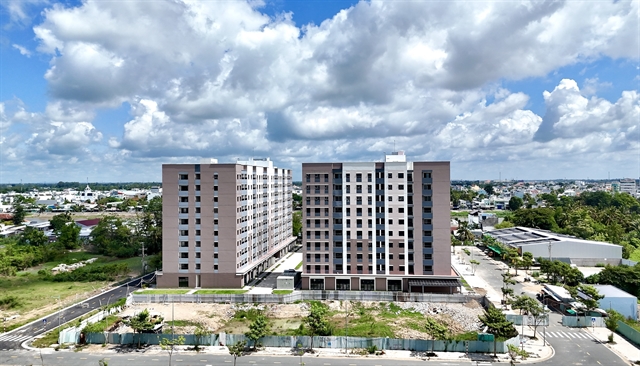By: Adetunji Ashafa
The housing sector is crucial to the socioeconomic development of any nation. The unique role of housing in lives, and in shaping the national economic narrative of a nation cannot be overstated. Housing serves as a gauge of the general level of living, accounting for a significant percentage of each country’s total economic activity, as well as being the biggest fixed asset of households. In addition to being a basic human necessity, the construction and use of decent housing also affect the physical and mental health of the people, as well as the environment. Through its impact on major macroeconomic indicators such as: employment, savings, investment and labour productivity, housing promotes economic growth and development. Thus, the construction of qualitative housing by both government and individuals is a necessary condition for sustainable development and increasing the productivity of an economy. The transformative role of the housing sector and the various housing programmes in shaping a country’s economic landscape, and as catalyst of sustainable economic development has made governments the world over to give ample attention to real estate and housing.
In the United States economy for instance, the housing market plays a very important role, where roughly 65 per cent of occupied housing units are owner occupied, where homes are often a substantial source of household wealth, and where housing construction provides widespread employment. As of 2021, spending within the housing market accounted for about 17 per cent of GDP, as a matter of fact, it was the housing bubble that precipitated the recession of 2007-2009. In Europe and China, it is the same narrative. In their economies, housing accounts for a significant portion of all economic activity, and changes in the housing sector can have broader effects on their economies. Housing development has not only been an important driver of growth and development in China, but the most populated Asian country have positioned it as a mechanism that drives growth, creates employment, acts as an economic stabilizer and redistributes wealth. This is because it sees housing as a domestic commodity that is not influenced by external demand and control.
Though not yet fully developed, housing (real estate) is an important sector which has contributed remarkably to Nigeria’s economy. The real estate sector’s contribution to GDP has steadily increased over the years. Real estate contributed N41.2 trillion to GDP in 2024, as against N30.7 trillion in 2023, making the sector the third largest economic sector, after trade and crop production, according to the National Bureau of Statistics The housing sector can play a more impacting role in the country’s broader economy. The sector and its associated services have a significant potential to be a catalyst for economic growth and development. The potential benefits of a well-developed housing sector ranges from increasing employments and spin-off industry to simulating the informal economy and building formal micro-enterprises,
The economy has not been doing well. The present administration has introduced a number of economic policies aimed at re-engineering and stabilising the economy, improving business conditions, and addressing financial challenges. The policies which focused on fiscal discipline, currency stabilization, job creation and infrastructure development are highly commendable policy initiatives. There is however what governments in other climes, particularly in the more developed world, do when their economies run into challenges. They invest massively in real estate and infrastructure. Real estate development stimulates economic activities, such as job creation, which ensures that people have means of livelihood. When they have means of livelihood, they will be able to pay tax, which is also used to refinance the economy and you have multiplier effects, and individual businesses thrives on the back of that.
I foresee in the nearest future a situation where real estate makes the most impact on the economy. The prospects are there for the housing sector to thrive, there are still a lot of opportunities for development within the real estate sector. The housing deficit of about 28 million offers incentives for investment. Government should take enough interest in housing like they are focusing on health, education and transport. It is only food that is more important than housing. The sector can be used as a growth mechanism in the nation’s economy. Government should also create a robust mortgage system where people can have access to taking a loan to buy or build house. That will improve the housing situation in the country. By taking a leading role in addressing the challenges in the housing sector, the organized private sector can now seize the initiative more efficiently than government. Unlike government entities, which face bureaucratic delays and budget constraints, businesses can more quickly mobilize capital, adopt cutting-edge construction sustainable technologies, and respond to market demands with greater flexibility.
By leveraging public-private partnerships, the private sector can complement government efforts, bringing in expertise and efficiency that would drive housing development. However, for businesses to effectively drive housing development, government must relax and reform regulatory encumbrances, particularly the ones around land titling and documentation. By reforming the regulatory frameworks, government can create a more conducive environment for private developers to operate, enabling them to build more homes faster, and at affordable costs. The housing sector, and its potentials offers many useful linkages to economic growth and development. Therefore, adequate attention should be given to housing and its associated services, as they can contribute substantially to economic development.
Source: Tribuneonlineng




